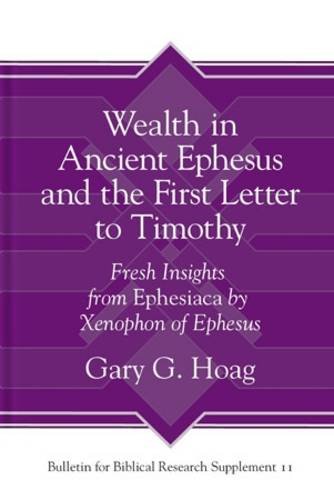Q4.BEN: The Ephesos of the mid-first century A.D. was a thriving place, and religiously pluralistic in character, though certainly the Temple of Artemis dominated the religious landscape. I quite agree that major temples like that of Artemis which had been following the same protocols for centuries in regard to who could become priests or curetes, or not, tended to follow the rule that noble birth was a requirement to aspiring to such an office. But of course this was not the case in other religions in town, for instance the up and coming Imperial cult, where Roman citizenship, which could even be obtained by buying it, or inheriting it, or achieving it through service to the Empire was the essential criteria for religious service in that particular cult. There were, in addition of course, many Jews in Ephesos of various sorts (some more Hellenized than others) and noble birth again was not a requirement for being a synagogue president or ‘rabbi’ it would seem. I bring this up because you make much of the claim that because noble birth is not the criteria mentioned in 1 Timothy for being a deacon or an overseer, that this makes the Christian practice ‘counter-cultural’ to some degree. Perhaps, if you are just focusing on the temple of Artemis that is true, but it was not the only religious game in town. How would you respond?
A4.GARY: Your depiction of mid-first century Ephesos as a thriving, religiously pluralistic place that honored Artemis supremely while simultaneously extending reverence to Rome matches my findings. Ancient sources in general and Ephesiaca in particular present wealthy Ephesians leading the way in upholding these social and cultural values and aspiring to prominent cultic roles in the Artemisium and the Imperial temple.
Scholars such as Dibelius and Conzelmann have argued that the church had settled into this cultural setting and assimilated its local norms. To defend this claim they compare 1 Tim 3:1-13 to vice / virtue lists from the Greco-Roman world and suggest that God’s church was following the pattern set forth by the Hellenistic moral philosophers in determining qualifications for spiritual service. As you put it, there were other religious games in town and from ancient Judaism, we can locate the themes of greed and stewardship that appear in 1 Tim 3:1-13. In plain terms, the thinking behind the qualifications may sound Hellenistic, but its roots appear deep in the Jewish roots of the faith.
But here’s where the twist comes, and what makes 1 Tim 3:1-13 radically counter-cultural when viewed in light of Ephesian evidence. People of various religious traditions in Ephesus would have been welcome to worship other gods. Wealthy Ephesians, however, regardless of their religious beliefs, would not only have been expected to honor the goddess supremely (as well as the emperor), they would lead the way for the people in exhibiting piety to the goddess. For prominent citizens, Ephesus was a place where failure to do so meant suffering fines or even the threat of death (cf. Vitruvius, On Architecture; Achilles Tatius, Leucippe and Clitophon).
That’s where reading Ephesiaca alongside other ancient evidence is insightful. It portrays a wealthy couple (Anthia and Habrocomes) and illustrates the cultural expectations of them as prominent Ephesians. Anthia is presented as a daughter of noble birth. She dresses to imitate Artemis and models piety for the women of the polis. The entire storyline of Ephesiaca
reinforces the religious fixture that if (and when) she failed to honor Artemis, it put her at risk of the vengeance of goddess.
Likewise Habrocomes (in the thinking of Xenophon of Ephesus) anticipated priestly roles linked to his lineage rather than his character. Those roles came with expectations liked to the Artemis cult and the city. Because of these strong religious themes, classical scholars describe Ephesiaca as a hieros logos, written by Xenophon of Ephesus to reinforce the religious rules that come into view in other ancient sources.
Furthermore, here’s what I think modern readers may be missing regarding the ancient significance of this section that we often describe as “the qualifications for leadership” in God’s Church. Ephesos was not a setting where prominent, wealthy Ephesians could decide whether or not they wanted to honor the goddess supremely or not. As long as they honored the goddess supremely “other religious games” were also welcome.
This may explain why author of 1 Tim would use such strong language in giving Timothy orders to remain in Ephesus and refute the heresy promoted: it was anything but accommodating to the monotheistic way of Jesus. Ephesus was not a safe place for followers of Jesus Christ, especially if the reputation of another deity, such as Jesus Christ, would appear to rival the renown of the goddess Artemis. The riot of Acts 19:23-41 illustrates this. The qualifications for men and women aspiring to spiritual service in God’s house, in this light, reflect supreme loyalty to a different deity than the one all prominent citizens were expected to exalt.













